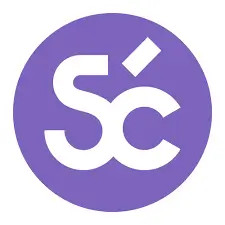As we build ties with companies around the world, it’s great to welcome such players as Task Force, a Kyiv-based LSP driven by passion to excel and deliver quality translation services, to our team of partners.
It’s not surprising that companies like Task Force turn to latest technologies in their effort to offer their clients the best solutions there are on the market, but it takes forward-thinking individuals like Natalya Gorbachevska, Task Force’s co-founder, to take the first step.
We talked to Natalya about where the amalgam of ambition and experience can take you and how the Task Force team is making a difference in the developing Ukrainian translation market with Smartcat as their primary weapon of choice.
— How long have you been working in the translation industry?
Personally, I have been in the translation field for more than 15 years — it so happened that I have a degree in Philology and many years of experience as a marketing specialist in an international company. As part of my professional activity, I had to deal a great deal with translations — mainly marketing and legal texts on the client’s side. Since 2011, when the Task Force Translation Agency was established, I have had an opportunity to see the work of the LSP from within. In these seven years Task Force has firmly established itself in its niche, becoming one of the leading translation agencies in Ukraine.
— What motivates you to provide language services?
Well, we don’t cut corners :) From the very beginning it was clear that the Ukrainian translation market was quite wild. For my part, being a romantic person by nature and having experience of working and living abroad, as well as experience of working for an international company, I wanted to bring a little “civilization” to it. Fortunately, there was understanding of what to do and how, which processes to set up, what kind of team to form.
We are proud at Task Force to be an intermediary, whose key task is to manage complex translation projects for our customers. Whereas many small companies, that simply see their task in transferring the finished file from the translator to the client, still operate on the market (at which no proofreading and automation are implied), we explain to our clients how a better result can be achieved. We have established a constant dialogue with freelance translators, we use specific examples to showcase how we can simplify their lives so they can focus on the translation without being distracted by a million different other organizational issues.
— Tell us about the participation of Task Force Translation agency in the industry.
It appears that the main format of our participation in the development of the translation industry in Ukraine is educational. We are one of the few agencies (at least in Kyiv), which conducts events for clients on translation issues. Our business breakfasts with notaries (about notarial certification, apostilles, etc.) have already become classics, and we recently started featuring website translation as it has many nuances, which should be considered by the client still at the development stage so that the translation then perfectly “fits” the created template, so that the target audiences react adequately to the content.
We also conduct regular webinars and live training events for our translation team involving not only staff, but also freelancers. Of course, our marketing department is constantly inventing new activities for them in order to encourage them to join webinars and take into account the corrections made by clients and editors.
We also provide on-the-job training for student translators and conduct lectures at profession-oriented universities. But this is a very long path, as high school graduates are still in need of training, and 3rd-4th-5th year students are not professionally mature. Many students have no idea what CAT tools are, even those on senior courses of profession-oriented universities! And we cannot entrust them with translation even after on-the-job training. Thus, we focus on training practicing specialists. By the way, the lectures that I have delivered this year at universities included a mandatory section on CAT tools. I had to explain in hand-waving terms on the example of Smartcat how it operates and why it is needed, how the work of both the manager and teams of linguists is simplified through the use of specific software.
— Which expert areas, in your opinion, are requested the most in the field of translations in Ukraine?
The main consumers of translation services in Ukraine are standard export-oriented industries, services (for example, IT), and, of course, the spheres in which foreign investors work (heavy production, for example). Moreover, many Ukrainian companies are considering the translation of their websites, which is a separate chunk of work. So, there is a lot of room here, where everything depends on the LSP’s client portfolio and the skills of the marketing service and business development service as to how to develop this business and to attract new customers. I’m sure the market has great potential, although there are some problems.
— What kind of future is in store for the translation industry in Ukraine?
The Ukrainian translation market is experiencing the problem of strong competition and some companies are struggling with it by simply bottom-feeding.
Bottom-feeding is also facilitated by a large number of tenders (bids) announced by both Ukrainian and international companies operating in Ukraine. In many tenders the price is, if not the only factor, then one of the most significant factors in choosing a preferred bidder. As a result, many LSPs are not able to provide acceptable quality at the prices they announce themselves, because those performing the work (translators working in the market), like IT specialists, have the possibility of easy and quick access to foreign markets, to foreign customers who pay significantly more. Therefore, it is more interesting for them to work for those who “beat the price”. And many client companies in Ukraine have a claim to the quality of the translation without understanding the root of the problem. After all, those who agree to work cheaply, and work under the terms of many Ukrainian agencies, are either not experienced, or are not in demand at international marketplaces due to certain flaws in translation. What is left for them to do?
The improvement of the translation sphere in Ukraine undoubtedly lies in raising prices and improving the quality of translations. And our task, like of any conscious LSP, is to communicate to clients the direct relationship between price and quality.
— Do you think it’s worthwhile for agencies to try to offer their services in countries and markets outside their own region?
Yes, definitely. We are already cooperating with several countries and offering foreign clients translations into different languages. At the same time, we focus on translation into Ukrainian and Russian, as our translators are native speakers of both of these languages. I believe this is a serious competitive advantage.
— Who would you focus on in the long term — full-time translators or freelancers?
We focus on working with full-time translators, but, of course, we work with freelancers, because at times there are requests for different languages, including rare ones. At the moment 10 full-time translators are employed while the freelancers total more than 300 (including those at the Smartcat marketplace). And their number is increasing. It goes without saying that we hold routine training and feedback webinars based on the results of comments from editors and clients — for both in-house people and freelancers.
— What are the most difficult tasks that the project manager faces at the beginning of work on a new project?
The most important thing is to “align” the client’s expectations and our capabilities. It is important for a customer service manager to correctly distribute the order to the relevant performers and to monitor their progress. That is where Smartcat comes to the rescue. It allows managers not only to monitor the work of a translator and an editor, but to also actively use glossaries and translation memories to consolidate all the knowledge about the client company that will be useful in translation.
— What services does Task Force provide?
The Task Force Translation Agency has a wide range of services. We offer both written and oral translation (consecutive, simultaneous, we have equipment for simultaneous interpretation). An appointed manager works with notarial certification, apostilles and legalization. We also have our own layout and desktop publishing department, since the permanent work in Smartcat is linked inextricably with the preparation of client projects for translation (identification of text, layout preparation, desktop publishing, reverse design of marketing materials that we get for translation).
— How many languages does Task Force work with? Do you believe that translation agencies should strive to increase the number of language pairs offered to clients?
We are guided by clients’ requirements in this respect. We already translate into 50 world languages and we realize that there is more to come. Our HR department is constantly doing a great job of finding and testing new translators in those language pairs in which a shift in demand is observed. By the way, the Smartcat marketplace is once again a great advantage for us in this respect as we can easily choose native speakers there, including in exotic language pairs. Moreover, we hold Smartcat-supported tests for freelancers on our materials for systemic long-term projects.
— What are the prospects for partnership with Smartcat?
We are proud to be a Smartcat partner and simultaneously a user in Ukraine. Using Smartcat helps us to execute projects faster and to ensure high quality — it allows you to do what cannot be done manually. It also gives a possibility to administer large glossaries, to set automatic quality requirements, and “remember” the customer’s requirements to translations, creating a translation memory, and to manage payments and settlements with freelancers around the world.
Smartcat provided us with a solution, without which further development of our business at a certain stage (about five years ago) became impossible. When I mention Smartcat, I mean the automation of translations in the best sense of this word. Automation does not imply “machine translation”. It is an opportunity to perform work more qualitatively and quickly while utilizing the same resources (i.e. not hiring more people).


